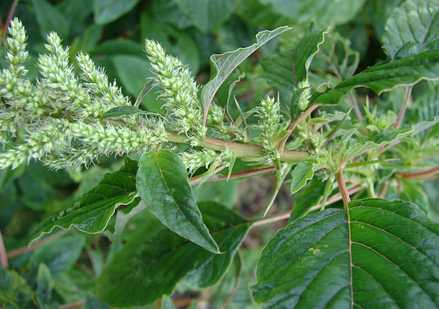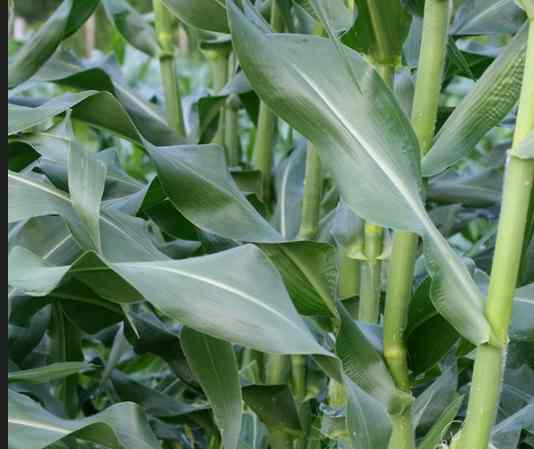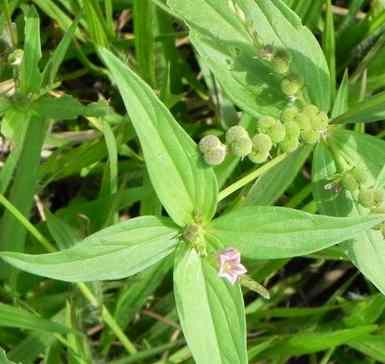
support@yorubalibrary.com
+2348073529208, 07038599574

Yoruba people often chorus that "Dagunro ko se je, ise te je Tete, e ma je Dagunro, Dagunro ko se je". (Dagunro is inedible, the way you ate Tege vegetable, don't eat Dagunro as such).
Efo Dagunro, also known as Dagunro leaf in Yoruba, is one of the most feared and respected herbal plants in Yoruba traditional medicine. Its English name is Spiny Amaranth, and its botanical name is Amaranthus spinosus. Yoruba elders classify it as a “hot and thorny leaf” with strong physical and spiritual power.
Unlike other common herbal leaves, Efo Dagunro is not eaten as food in Yoruba land because it has sharp thorns and is considered sacred for traditional and spiritual use only. The Yoruba people believe that Dagunro carries natural energy capable of stopping bleeding, fighting stubborn ailments, and protecting against witchcraft or negative forces.
This plant grows wildly on farmlands, roadsides, and abandoned places, and it is easily recognized by its spiny stems and tough green leaves. Herbalists and traditional healers rely on Dagunro for many powerful remedies and rituals.
Key Facts
Category: Leaf
Botanical Name: Amaranthus Spinosus
Common Name: Spiny Amaranth
Yoruba name: Efo Dagunro
Igbo Name: Nil
Hausa Name: Nil
Health Benefits
1. Stopping Bleeding and Healing Wounds
Efo Dagunro (Amaranthus spinosus) is highly valued for its ability to stop both internal and external bleeding. Yoruba herbalists pound the fresh leaves and apply them directly to open wounds to stop blood flow quickly. Women who experience heavy bleeding after childbirth are also given a carefully prepared herbal decoction of Dagunro to reduce excessive blood loss.
2. Cleansing the Blood and Treating Stubborn Ailments
Dagunro is used to flush out harmful toxins from the blood. Traditional healers prepare it with other herbs as a cleansing medicine for those suffering from chronic or long-lasting illnesses.
3. Fever and Malaria Treatment
The boiled water of Dagunro leaves is taken in small quantities to treat fever and mild malaria. Its “hot” natural energy is believed to attack malaria parasites effectively.
4. Treatment of Stomach Disorders
Herbal mixtures made from Dagunro are used to cure stomach pain, dysentery, and stubborn diarrhea. Yoruba herbalists prepare it carefully in controlled doses because of its strong potency.
5. Relieving Rheumatism and Body Pain
Dagunro is sometimes combined with other roots and leaves in herbal mixtures to relieve body pains, joint pain, and rheumatism.
6. Strengthening Weak Patients
Even though it is not eaten as a vegetable, its herbal water is believed to restore lost strength and energy to weak patients recovering from severe illness.
Want to treat common ailments such as Malaria, Cough, Measles, Typhoid, Pile etc naturally without spending much? Grab a copy of Authentic Herbal Solutions: 15 Common Ailments & Their Natural Cures. A practical eBook recommended for everyone regardless of tribe, religion or association. Order below or Download sample here
AUTHENTIC HERBAL SOLUTION #4KOne Yoruba proverb says "Bí olóde ò kú, òde rè kì í wu Gbégi". Do you know that Gbégi is actually a leaf/plant? Get Yoruba Proverbs on Plants and Herbs, which is a collection of Untold Wisdoms Hidden in Leaf and plants comprising their Life Applications & Moral Teachings. Order below or download sample here
YORUBA PROVERBS ON PLANTS #4KSpiritual Use
1. Protection Against Evil Forces
Efo Dagunro is considered a powerful protective plant in Yoruba land. Leaves are placed around homes, tied to doorposts, or kept under pillows to prevent spiritual attacks from witches and negative spirits.
2. Breaking Curses and Removing Bad Luck
Traditional healers prepare herbal baths with Dagunro leaves for people suffering from repeated bad luck or spiritual curses. Bathing with this herbal water is believed to wash away negative energy.
3. Neutralizing Witchcraft and Harmful Charms
Burning dried Dagunro leaves during rituals is a common practice among Yoruba herbalists to weaken or destroy harmful charms and witchcraft sent by enemies.
4. Purification and Spiritual Cleansing
Dagunro leaves are soaked in water overnight, and the water is used early in the morning to bathe for spiritual cleansing. It is believed to purify the body and restore good spiritual energy.
5. Courage and Spiritual Strength
In the olden days, hunters and warriors used Dagunro herbal preparations to gain courage and spiritual strength before going into battle or dangerous forests.
Characteristics
• Physical Appearance
Efo Dagunro has sharp thorny stems, which makes it unique among Yoruba medicinal plants. Its leaves are tough, green, and slightly broad, and the plant produces small greenish flowers.
• Growth Pattern
It grows freely in abandoned farmlands, roadside areas, and bushy surroundings, especially during the rainy season.
• Natural Strength
Yoruba people believe the sharp thorns carry strong spiritual energy, which is why it is mostly used for protective and cleansing rituals.
Functions
• Herbal Medicine
Used for bleeding control, fever, stomach disorders, and body pain.
• Spiritual Protection
Placed in homes or carried as a charm against witchcraft and negative energy.
• Traditional Rituals
Important in rituals for breaking curses, purification, and removing bad luck.
Conclusion
Efo Dagunro, the Yoruba Spiny Amaranth (Amaranthus spinosus), remains one of the most powerful leaves in Yoruba traditional medicine and spiritual practices. Its healing strength, protective power, and sacred status make it a powerful plant in Yoruba land. Though forbidden to be eaten, it continues to serve as a great herbal and spiritual remedy.
Have you heard of our Yoruba Herb Dictionary? This contains names of Yoruba Leaf, Roots, Barks, Characteristics, Properties & Identification with HD Pictures. Order below or download sample here
A-Z HERBS & LEAF DICTIONARY #4K
Know more about the Yoruba traditional uses and he…

Learn about Ewe Aran, a potent Yoruba medicinal le…